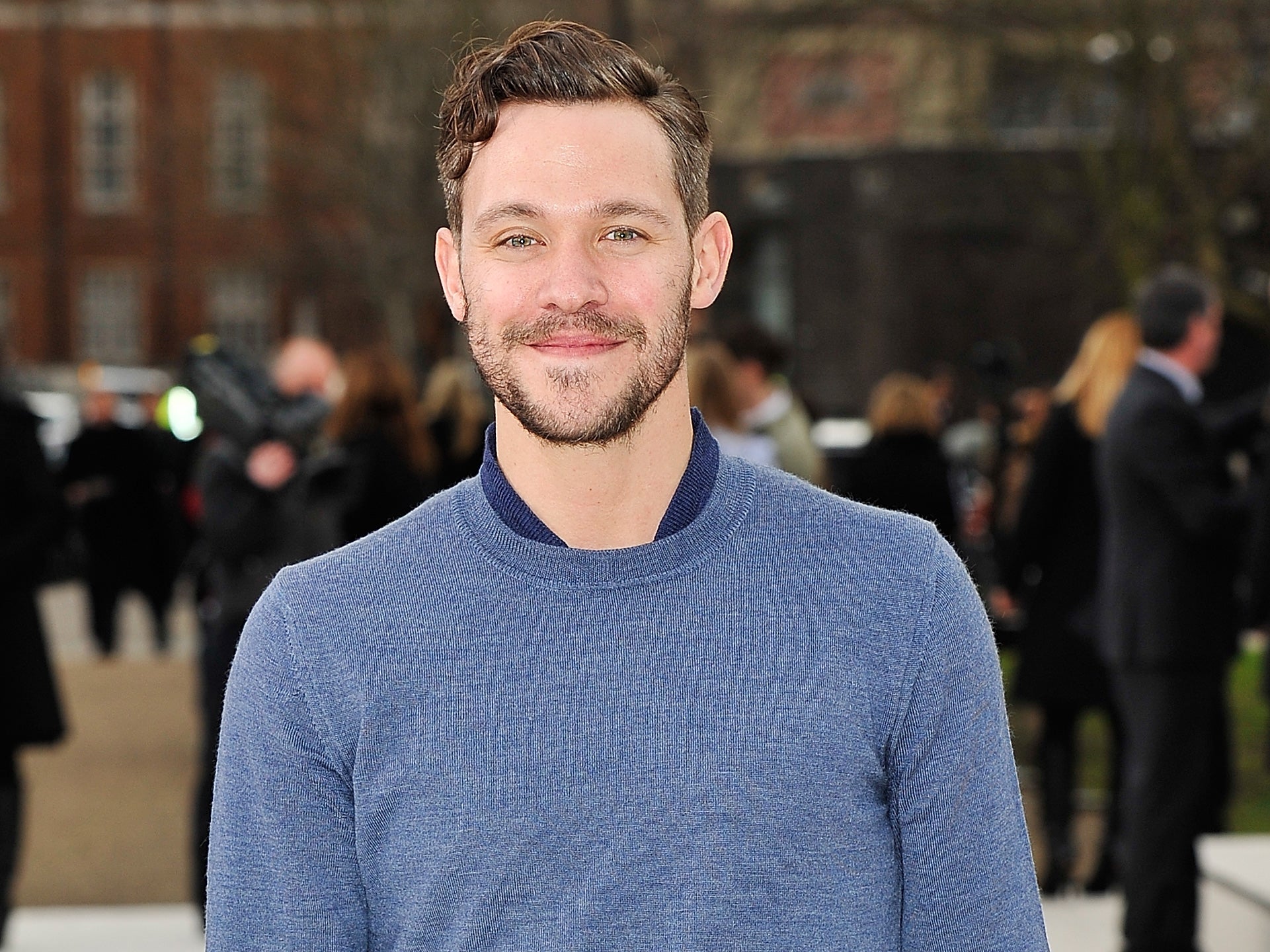Why Will Young wears dresses and is helping transgenderism enter mainstream culture
Will Young’s new video starring a naked trans actor went viral, but what do trans musicians make of the statement?

Music is having a transgender moment. Presenting the European Music Awards last weekend, the Australian DJ, model and actor Ruby Rose welcomed the audience of “ladies and gentlemen, and everyone in-between” to the event, giving a subtle yet important nod to those watching who may have been born one gender but know they are another.
Lee Daniels (co-creator of the television show Empire) has said that his new music drama, Star, about four women trying to make it big in the music industry, will include a “half African-American and half-Latina transgender woman with a stunning look” and a “keen eye for fashion” called Cotton; and last week, Will Young released the video to his single “Brave Man”, the latest track from his album 85% Proof. The video showed a transgender man walking around naked and being taunted. It instantly went viral.
Transgender people may have have been pushing for equality for aeons, but, as Carmen Carrera, a transgender model and actress, said this week in Time: “Five years ago [transgender] wasn’t so mixed into pop culture, into mainstream. This is our moment of becoming part of the mainstream.” And what better way to access the mainstream than through pop music?
Rose is gender-fluid and wanted to transition to male when she was younger. Last year the star wrote and produced a five-minute video set to Butterfly Boucher’s “It Pulls Me Under”, which showed Rose changing from a dolled-up woman in a dress to the cropped dark hair and tattooed look that she has now. The final part of the video sees her in a boyish outfit and aggressive pose, cigarette in mouth, staring hard into the lens.
The video was received with overwhelming praise from the trans community. The response to Will Young’s has been more mixed. As the mainstream media begins to take notice of trans people it needs to be careful about how they’re represented.
Young says that the decision to include a transgender man in his music video for “Brave Man”, which has sparked a debate about the way transgender people are represented in mainstream culture, wasn’t a calculated way of capturing the zeitgeist. It just came to him. “I was sitting in my car wondering about what it meant to be a brave man and it just came together and I was instinctively happy about the idea,” he says. The video is directed by his long-term collaborator, WIZ, but they also consulted a transgender filmmaker, Fox Fisher (who made the #MyTransStory short films for Channel 4). Fisher helped to cast a real female-to-male transgender person, who is known as Finn. “He wants to remain as anonymous as possible but when he came to the casting his performance was astounding” says Young. “I spoke to him a lot about his experiences after that and continue to do so. It’s a relationship based on trust, and love, actually.”
The video has certainly sparked a debate, with trans writer and activist Paris Lees saying it’s a “nice sweet video” that has come “from a really good place”, while tweeting a list of “#transallies; those who don’t consider themselves to be transgender but who do support the cause (a point also expressed by left-wing commentator Owen Jones) but she said that the choice to show Finn naked was “reducing trans people to body parts”.
CN Lester, a trans musician, objected to the way the video showed Finn as a victim, saying: “Trans people are suffering and we face abuse, but I also want people to know we are fighting back.” Many more took issue with Young trying to speak about an experience that is not personal to him.
“That’s completely fair enough,” agrees Young, “but when I think about the evolution of gay rights I think having people who were straight joining alongside [gay people] showed a sense of community, where wider society is embracing difference. A lot of musicians’ work is very inward-looking and that’s fine, but mine is the opposite.”
Nye Todd is the singer with Edinburgh-based band The Spook School, whose new album, Try to be Hopeful, features the song “Binary”. On it, Todd repeatedly sings “I’m not a hexadecimal”, it’s fairly explicit in its determination to address queer culture. He found Young’s video “really refreshing”.
“Sometimes people don’t take the extra step to research something, like Andrew Garfield [who played a transgender woman] in Arcade Fire's "We Exist" music video, but when I saw Fox Fisher was involved with “Brave man” I knew that meant they had taken a necessary step."

“A lot of the trans narrative in the media can be very sudden, like if you think of Caitlyn Jenner, it’s like they are presenting a certain way and then suddenly overnight they are someone different. Actually it is an evolution and a waiting game. Given that the actor was a trans man who hadn’t had chest surgery you can see that experience in the video.”
Young says popular music, in particular, offers a special platform, galvanising debates of this kind. “There are few things that are universal,” he says. “Music is one and sport is another because of the reach it has. I’ve always looked at music, particularly music videos, as reflections, my reflections on the world.”
Todd puts it more simply: “Music is very accessible and you get people who wouldn’t maybe sit down and read a book, but if you can write a really catchy song, they’ll listen. You can pack a big message into a short song.”
Unlike Todd, M Lamar uses his gender-blurring performances not to express his feelings about LGBT rights but to highlight aspects of black history and the modern black American experience. He is a singer and performance artist who describes himself as “a devil-worshipping, free black man in the blues tradition”.
He is also the twin brother of Laverne Cox, who plays Sophia, the transgender prisoner in Orange is the New Black. M Lamar appeared on the series as a pre-transition Sophia, but stopped watching the show after he discovered there were “no black people in the writing room”.
When I meet him at a cafe in New York he greets me with a firm handshake. He wears gothic makeup, plenty of silver jewellery, black Lycra leggings and has long black hair and plenty of black eyeliner drawn in a flame design across his brows. His singing voice is operatic and very emotive.
“I am trying to define my own parameters and not be identified by parameters outside,” he says. “For the record, I am not transgender in any way. I do things that I draw from punk culture to goth and metal music, where there has always been an androgynous aspect. And I am obviously a part of that, but when people talk about transgender I think that is a new market, I am interested in what pre-dates that. I don’t want to [dismiss] the category of man. I want to put pressure on it to rise to a higher standard. [Trans] disrupts the binary. Even though I am saying I’m a man, it disrupts this binary idea of masculinity.”
In a sense, he’s correct. The usage of the term “transgender” has only been in extensive use since the Nineties, and incorporates such diverse descriptions as transvestites, transsexuals, drag kings and queens, intersex, non-binary, gender-queer and gender fluid.
Although Lamar shuns the transgender label, he, like Todd, is able to express himself authentically through blurring binary concepts of gender. Todd has found his voice, literally and metaphorically, through singing for the band. “Before I came out as trans I was writing songs that were more and more obvious, so it was like a big game of chicken. I was expressing myself in one way but I didn’t have to come out explicitly.” Performing his lyrics gave him courage. “You think you are the only person that feels that way but then when you do a gig you realise other people can connect with it. I suppose it shows that ideas of identity are universal and not everyone has figured it out.”
Todd has written an open letter to his fans about taking testosterone in order to transition. “I suppose what I have found is that, even though my experience isn’t exactly the same as another trans man, if I am empowered by that trans label then it is not rooted to your whole experience, it is just one way that expresses you.” he says.
Young says he has also learnt a lot from making his video.
“What this transgender thing has done for me is to see my body is a shell, I used to work out so I’d have a six-pack to attract men but now I just want to be healthy, and if a six-pack comes with that that’s OK. Even though I align myself as a man I’ve realised souls are so fluid, they don’t have a gender.
“I sometimes wear dresses in terms of exploring why can’t men wear them and why is it OK for you to wear a kilt if you’re Scottish? I think it’s good to test those things and push the boundaries of what people think of as the norm.”
Join our commenting forum
Join thought-provoking conversations, follow other Independent readers and see their replies
Comments
Bookmark popover
Removed from bookmarks